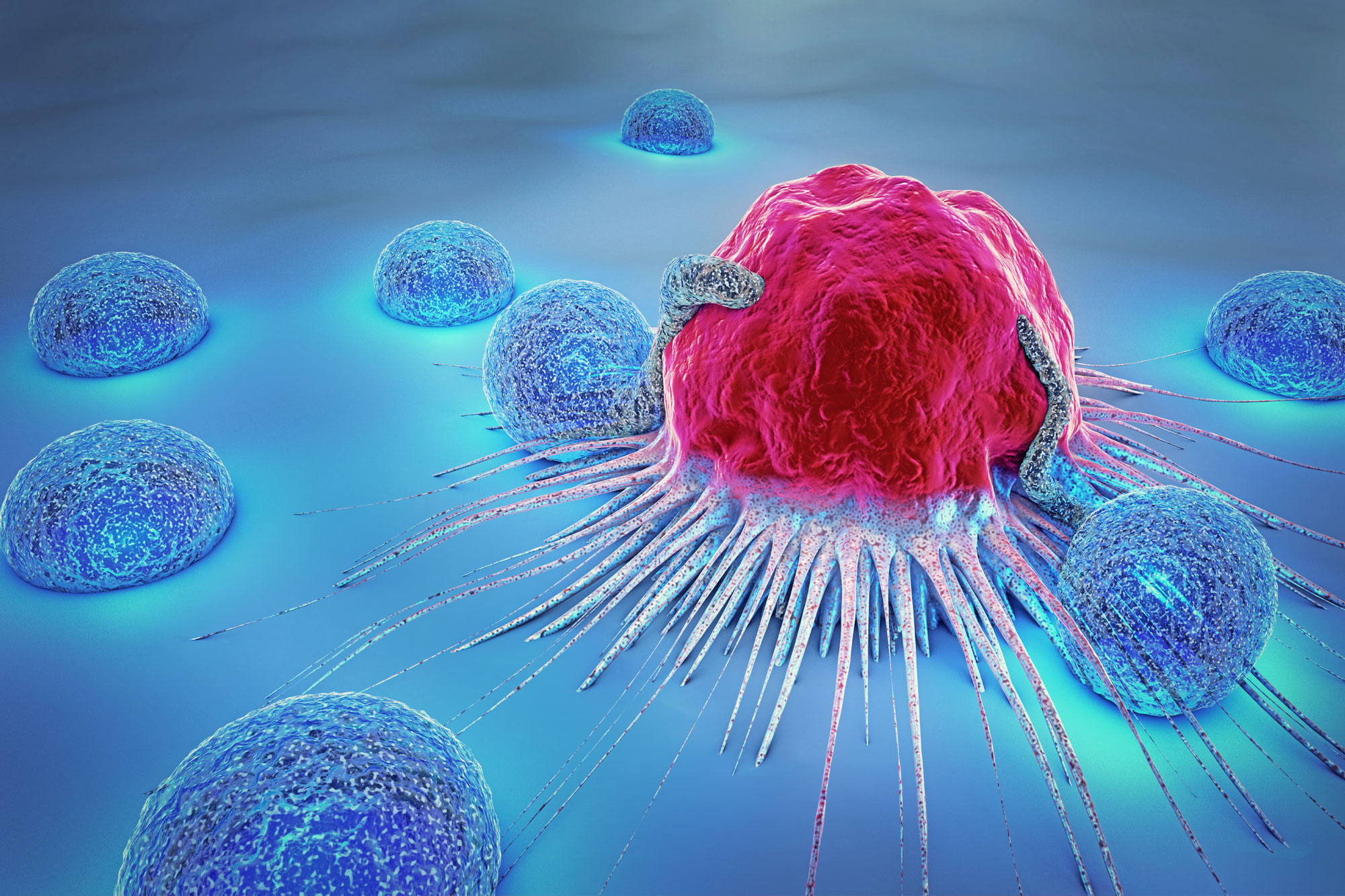350,000 mutations per day
Mutations, i.e. changes to the genetic material, occur constantly in the body's cells as a result of various influences and can lead to degeneration. Cancer can develop from the estimated 350,000 mutations per day. The degenerated cells are normally recognized and destroyed by the immune system. Only immunological tolerance to malignantly mutated cells can lead to the development of a tumor. In this case, an immunological attack on the tumor has usually already taken place beforehand, but was unsuccessful. Memory T cells remain in the immune system, which could fight the tumor again if it is reactivated. This principle is also used in our new therapy concept.
Obviously, the control mechanisms of the immune system can fail so that it can no longer effectively perform its guardian function. Once tumor cells have survived in the body for a while and a tumor has developed, it influences the immune system. Through various biological "camouflage mechanisms", it inhibits the aggressiveness of the immune cells and can make itself "invisible" to them. The immune cells "get used" to the tumor and do not fight it, even though it harms the organism. This immunological phenomenon is known as tolerance development. This can be broken with specific immunotherapy. However, if the body's own immune system is to take the initiative, it needs appropriate information about the cancer cells and activation to overcome tolerance.
Active versus passive treatment methods
The usual treatment of cancer today focuses on the destruction of cancer cells through surgery, radiation, chemotherapy, hormone therapy or passive antibody therapy as well as targeted therapies. These methods have the disadvantage that diseased and healthy cells cannot be properly differentiated. Therefore, the treatment always damages healthy tissue and leads to corresponding side effects. With conventional treatment methods, the patient therefore remains passive.
A paradigm shift has occurred with immunological cancer therapy: Polyspecific immunological cancer therapy is designed to enable the patient's immune system to become active and fight the disease on its own. This can lead to a complete cure. However, not every cancer cell necessarily has to be destroyed. Rather, it is now assumed that a balance can be established between the tumor and the immune system - resulting in an extension of overall survival with the best possible quality of life.
Leading scientists currently recommend the individualized combination of various conventional and immunological procedures. The IOZK immunotherapy is dedicated to this goal.
